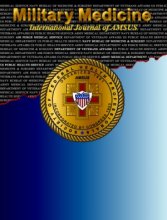By the Numbers - Apr. 21, 2014
200%
According to an article reviewing numerous studies in the April issue of Military Medicine -- Casualties of the Global War on Terror and Their Future Impact on Health Care and Society: A Looming Public Health Crisis -- "PTSD sufferers are 200% more likely to be diagnosed with an unrelated medical disease within 5 years of returning from deployment" than a control group without PTSD. Another study referenced here "found that veterans with PTSD used nonmental health care services—primary care, ancillary services, diagnostic tests and procedures, emergency services, and hospitalizations—at a rate 71% to 170% higher than those without PTSD. And yet another study showed that vets who sustained a traumatic brain injury -- "often overlapping with PTSD" -- have a higher risk for lifelong chronic ailments like heart disease and dementia.
200%
According to an article reviewing numerous studies in the April issue of Military Medicine -- Casualties of the Global War on Terror and Their Future Impact on Health Care and Society: A Looming Public Health Crisis -- "PTSD sufferers are 200% more likely to be diagnosed with an unrelated medical disease within 5 years of returning from deployment" than a control group without PTSD. Another study referenced here "found that veterans with PTSD used nonmental health care services—primary care, ancillary services, diagnostic tests and procedures, emergency services, and hospitalizations—at a rate 71% to 170% higher than those without PTSD. And yet another study showed that vets who sustained a traumatic brain injury -- "often overlapping with PTSD" -- have a higher risk for lifelong chronic ailments like heart disease and dementia.

